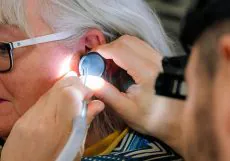What Is The Procedure For A Root Canal? Can I Eat After A Root Canal?
0 Views

A root canal is a dental technique to improve and protect your tooth when it’s poorly decayed, injured, or infected. If your tooth or its source is injured by trauma, you will generally experience discomfort and improved sharpness in that tooth. Frequent pain when you bite down often means your tooth may require a root canal.
Why would you require a root canal?
Once your tooth is treated, your specialist may put a peak on it. The concept here is to control forthcoming injury to an already delicate tooth. Occasionally, pain is a quick side impact as you get used to a recently placed crown. You might need a root canal if your tooth pulp, formed of nerves and blood vessels, becomes contaminated or injured. During the procedure, the pulp is extracted, and the inside of your tooth is filled and cleaned. For more information, visit a full mouth reconstruction near me.
Behind the Root Canal
Behind the root canal, you will require a dental crown to cover the tooth after rehabilitation. It will be more crispy than a living tooth and have weakening flaws from the real cause of the issue. Our dentists will check your tooth with a beautifully made crown that will help negate your bite and prevent future dental concerns from developing.
Symptoms of root canal
If you notice any of these signs, seeing your specialist as soon as possible is essential. The shortly your tooth can be treated, the better the result will likely be.
- A cavity
- Directed pain from a sinus disease or another issue
- A broken filling
- An affected tooth that may be infected
- Gum infection
Persistent pain
Persistent toothache is one of the symbols that you may require a root canal. The discomfort in your tooth strength bothers you regularly or goes away occasionally but always returns.
Tooth discoloration
A disease in the pulp of your tooth can force your tooth to evolve discolored. Although tooth contusion can have other reasons, it’s always a good idea to see your dentist if you notice that a tooth is modifying color.
Swollen gums
Swollen gums around the aching tooth can be a sign of a situation that requires a root canal. The node may come and go. It may be tender when you feel it, or it may not be unfortunate.
Tooth mobility
Tooth mobility can generated by different elements except pulpal necrosis, but it can be a signal that a root canal is required.
Does it cause pain?
The root canal method is equivalent to getting a considerable filling, but it’ll take extended. Your jaws will be numbed while the professional cleans and disinfects the roots, decays, and then serve them.
Your professional will use a rubber dam around the root canal tooth. This will prevent any infected material from spreading to the rest of your mouth. The research discovered that pre-treatment distress was increased but dropped relatively within a day of therapy and then dropped substantially to minimal levels within a week.
Conclusion
A root canal can generate soft pain for a few days. This is quick and should go away independently if you practice oral hygiene. You should see your root canal specialist near me for a check-up if the discomfort lasts over three days.
An option for a root canal is tooth extraction, where your dentist can substitute an injured tooth with a bridge, partial denture, or implant. This can be a costly therapy and usually requires several doctor visits. Are you looking for a dentist near me that do root canals? Schedule your visit today.
Related Posts

What Are the Benefits of Visiting an Ear Suction Clinic for Ear Wax Microsuction?
Andrin Andrin / January 10, 2025












